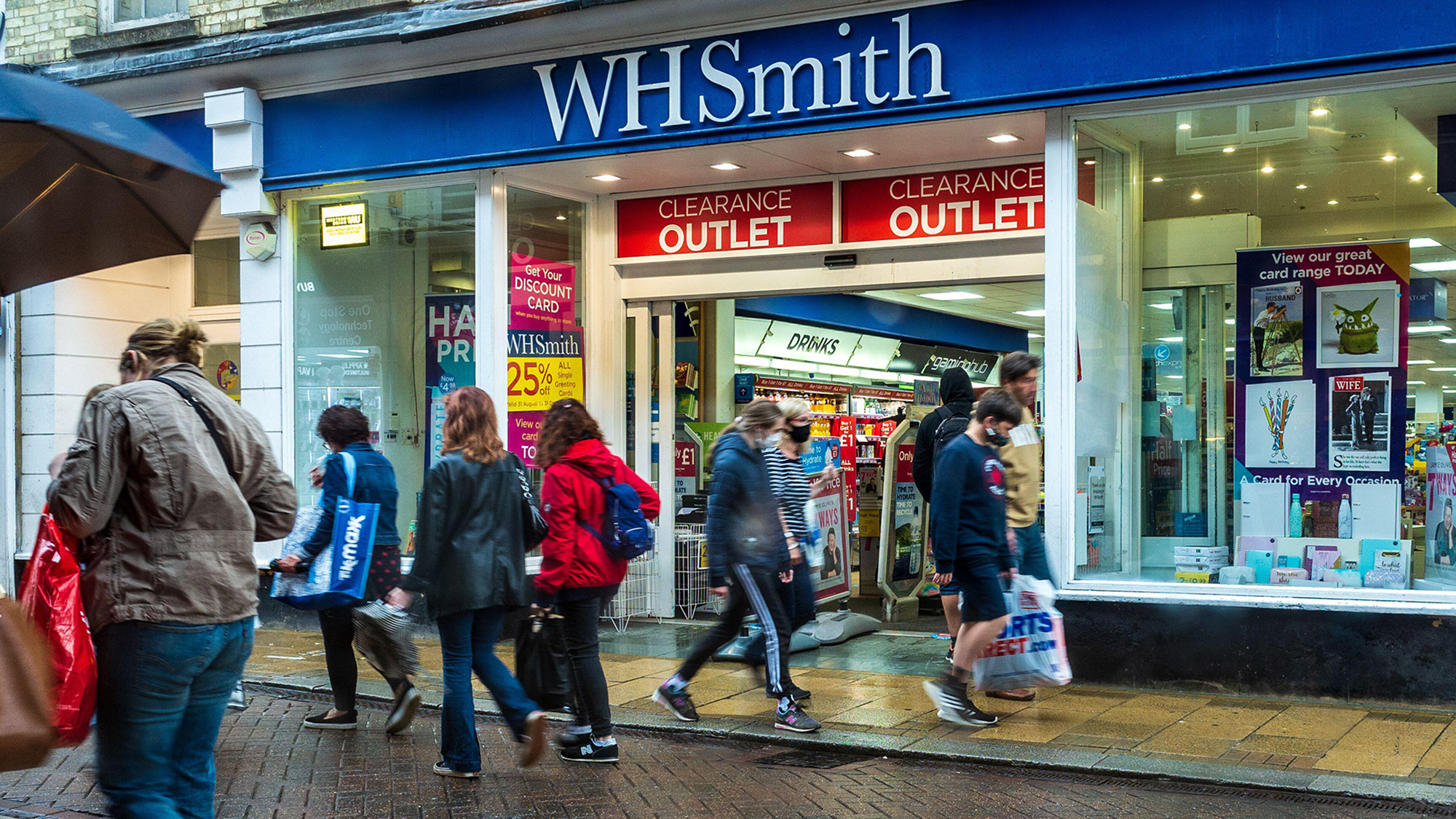The fall of WH Smith
A presence on Britain's high streets for over 200 years, the retailer may soon disappear

A free daily email with the biggest news stories of the day – and the best features from TheWeek.com
You are now subscribed
Your newsletter sign-up was successful
It must once have seemed that, "much like the British Empire, the sun would never set on WH Smith", said Alexander Larman in The Spectator. But the skies are looking dark.
The retailer is currently in talks to sell off its portfolio of 500 UK high-street stores, meaning a brand that has existed for over 230 years may follow Debenhams and Woolworths and disappear from our streets for good.
WH Smith does plan to retain its "travel-retail" presence in airports, train stations and hospitals, the part of its business which "now accounts for more than 85% of its profit", said the BBC.
The Week
Escape your echo chamber. Get the facts behind the news, plus analysis from multiple perspectives.

Sign up for The Week's Free Newsletters
From our morning news briefing to a weekly Good News Newsletter, get the best of The Week delivered directly to your inbox.
From our morning news briefing to a weekly Good News Newsletter, get the best of The Week delivered directly to your inbox.
'Regrettable experience'
At the height of its popularity in the 1960s, "half the British population purchased their newspapers from WH Smith", said the Daily Mail. By the 1970s, it had become the "ultimate stationery destination", famous for "sleek interiors" and "state-of-the-art listening pods", where you could listen to (vinyl) records before buying them.
Sold by the original Smith family in the 1980s, the company went "from strength to strength", cementing its reputation as a "heavyweight in retail", and a "quintessentially British" one to boot.
So, where did it all go wrong for the chain which, against all odds, seemed to have "survived the high-street cull"?, asked The i Paper. Undoubtedly, the "shift from people shopping in-store to online" has played a part in the retailer's demise.
The "untidy" and unloved state of its stores has also been key. A recent Which? survey found WH Smith "ranked the lowest" for customer experience in a high-street shop – the "ninth year in a row" it's been placed in the "bottom two spots". Time spent in any of the brand's high-street branches is now a "regrettable experience", said Larman in The Spectator. With innovation sparse, and attempts at expansion unsuccessful, the stores are clearly "in need of a metaphorical trip to Dignitas".
A free daily email with the biggest news stories of the day – and the best features from TheWeek.com
'Easier, cheaper, better'
WH Smith has confirmed that talks are in progress over the sale of its high-street stores but that there is "no certainty any agreement will be reached". Consequently, the jobs of 5,000 store staff now hang in the balance. About 200 WH Smith stores also operate Post Office counters "staffed by WH Smith employees", said the BBC.
Clearly, WH Smith's future is "bleak", but we're all "part of the problem", said Mark Smith in The Herald. We "say we want the high street" but, actually, we "stay at home and scroll, scroll, scroll, because it's easier, cheaper, better". WH Smith is the "diplodocus that survived the asteroid" and "the high street is no longer as it was".
If you're counting on a last-minute rescue from a "deep-pocketed buyer" who can turn WH Smith around, "don't get your hopes up", said Larman. Just like "many other things in public life today", there is really "no reasonable hope for its revival".
Rebekah Evans joined The Week as newsletter editor in 2023 and has written on subjects ranging from Ukraine and Afghanistan to fast fashion and "brotox". She started her career at Reach plc, where she cut her teeth on news, before pivoting into personal finance at the height of the pandemic and cost-of-living crisis. Social affairs is another of her passions, and she has interviewed people from across the world and from all walks of life. Rebekah completed an NCTJ with the Press Association and has written for publications including The Guardian, The Week magazine, the Press Association and local newspapers.
-
 How to Get to Heaven from Belfast: a ‘highly entertaining ride’
How to Get to Heaven from Belfast: a ‘highly entertaining ride’The Week Recommends Mystery-comedy from the creator of Derry Girls should be ‘your new binge-watch’
-
 The 8 best TV shows of the 1960s
The 8 best TV shows of the 1960sThe standout shows of this decade take viewers from outer space to the Wild West
-
 Microdramas are booming
Microdramas are boomingUnder the radar Scroll to watch a whole movie
-
 Companies are increasingly AI washing
Companies are increasingly AI washingThe explainer Imaginary technology is taking jobs
-
 Buffett: The end of a golden era for Berkshire Hathaway
Buffett: The end of a golden era for Berkshire HathawayFeature After 60 years, the Oracle of Omaha retires
-
 Why is pizza in decline?
Why is pizza in decline?In the Spotlight The humble pie is getting humbler
-
 How prediction markets have spread to politics
How prediction markets have spread to politicsThe explainer Everything’s a gamble
-
 Tariffs have American whiskey distillers on the rocks
Tariffs have American whiskey distillers on the rocksIn the Spotlight Jim Beam is the latest brand to feel the pain
-
 TikTok secures deal to remain in US
TikTok secures deal to remain in USSpeed Read ByteDance will form a US version of the popular video-sharing platform
-
 SiriusXM hopes a new Howard Stern deal can turn its fortunes around
SiriusXM hopes a new Howard Stern deal can turn its fortunes aroundThe Explainer The company has been steadily losing subscribers
-
 How will China’s $1 trillion trade surplus change the world economy?
How will China’s $1 trillion trade surplus change the world economy?Today’s Big Question Europe may impose its own tariffs